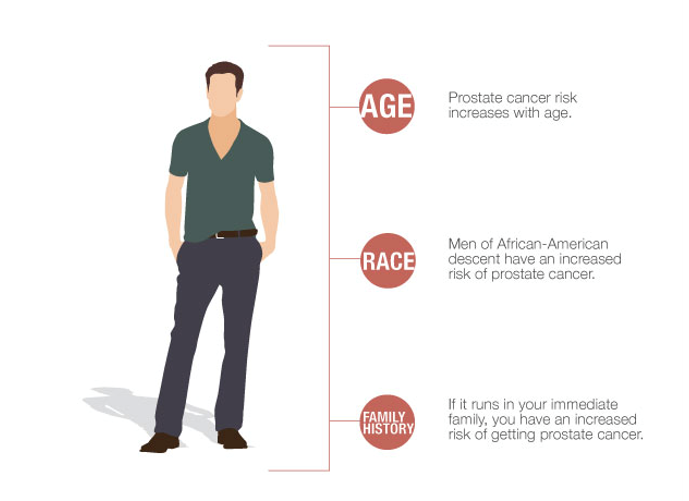

WHAT IS PROSTATE CANCER
Prostate Cancer is caused by the formation of cancer cells in the tissues of the prostate gland. The prostate is a “walnut-shaped” gland that plays a role in the reproductive system of males, producing seminal fluid that nourishes and transports sperm. Prostate cancer is one of the most common types of cancer. It is the most common cancer among men in the United States. The Centers for disease protection and Control (CDC) states that “Prostate Cancer is also one of the leading causes of cancer death among men”
Many prostate cancers grow slowly and are confined to the prostate gland, where they may not cause serious harm. However, while some types of prostate cancer grow slowly and may need minimal or even no treatment, other types are aggressive and can spread quickly. Signs of prostate cancer most often show up later, as cancer grows. Some signs of prostate cancer are;
Trouble Peeing
Blood in urine
Trouble getting an errection
Pain in the back and hips, or, other bones
Although these symptoms can also be associated with Urinary infections, bladder cancer, bone cancer, etc, it is always recommended to consult your doctor as soon as you notice any of these symptoms
RISK FACTORS
The main factors that can increase your risk of prostate cancer are:

- Older age. Your risk of prostate cancer increases as you age. It’s most common after age 50. The reason why prostate cancer is subsequently found more in older people is due to its slow progressional growth which can often lead to the person dying before the cancer even has a chance to develop.
- Race. Black people have a greater risk of prostate cancer than do people of other races. In Black people, prostate cancer is also more likely to be aggressive or advanced.
- Family history. Like most cancer origins, if a blood relative, such as a parent, sibling or a child has been diagnosed with Prostate Cancer, the risk may be higher.
Frequently Asked Questions
WHAT ARE THE SIGNS OF PROSTATE CANCER?
Some signs of prostate cancer inlcude ;
trouble peeing,
blood in the pee (urine),
trouble getting an erection,
and pain in the back, hips, ribs, or other bones.
Although these symptoms can also be associated with Urinary infections, bladder cancer, bone cancer, etc, it is always recommended to consult your doctor as soon as you start to notice any of these symptoms.
HOW CAN I GET TESTED FOR PROSTATE CANCER?
PSA tests are often used together with a Digital Rectal Exam (DRE) to increase the chance of detecting any abnormal activities in the prostate. This can warn doctors about the potential development of cancer early when it is easier to treat. However, the only definite way to certainly confirm the presence of prostate cancer is through a prostate biopsy.
WHAT IS THE SURVIVAL RATE FOR PEOPLE DIAGNOSED WITH PROSTATE CANCER?
If a patient’s prostate biopsy results reveal that the cancer is only situated in and around the prostate gland, there is an almost 100% chance of a patient surviving another 5 years. However, if cancer has spread to other organs, the chance
WHY IS PROSTATE CANCER MORE COMMONLY FOUND IN OLDER PEOPLE?
The reason why prostate cancer is subsequently found more in older people is due to its slow progressional growth which can often lead to the person dying before the cancer even has a chance to develop.
DOES OBESITY HAVE AN EFFECT PROSTATE CANCER PATIENTS
Obese individuals may have a higher risk of Prostate Cancer than those who aintain a healthy weight and BMI (Body Mass Index). Obese individuals are more likely to have more aggressive cancers that are more likely to come back after initial therapy
WHAT IS A PSA TEST?
A PSA test is a blood test, which is often used together with a digital rectal exam (DRE) to increase the chance of finding prostate cancer early when it is easier to treat. Using these tests together is better than using either test alone.
DOES A HIGH PSA LEVEL MEAN I HAVE PROSTATE CANCER?
It’s important to remember that having a high PSA level isn’t always an immediate cause for alarm. Many things can affect PSA levels including ejaculation, riding a bike, certain medical procedures involving the prostate, and certain medicines or herbs. Your doctor will give you instructions on how to prepare for your PSA test.
DO MEN THAT HAVE LARGER PROSTATE GLANDS HAVE HIGHER PSA LEVELS?
Men who have larger prostate glands have higher PSA levels. To adjust for this factor, doctors use an ultrasound to measure the volume of the prostate, and then divide the PSA number by the prostate volume. Having a higher density could mean there’s a higher risk of cancer.
